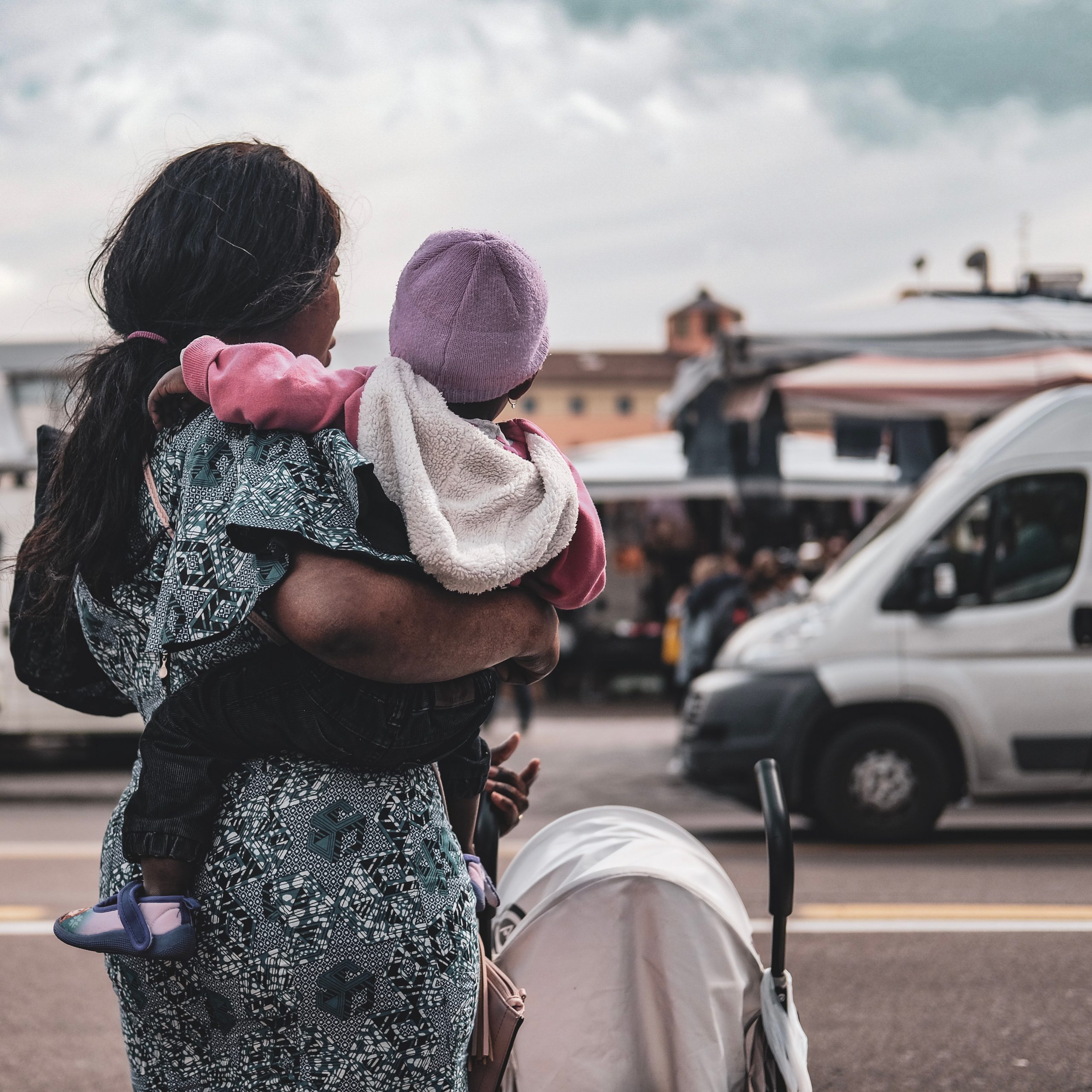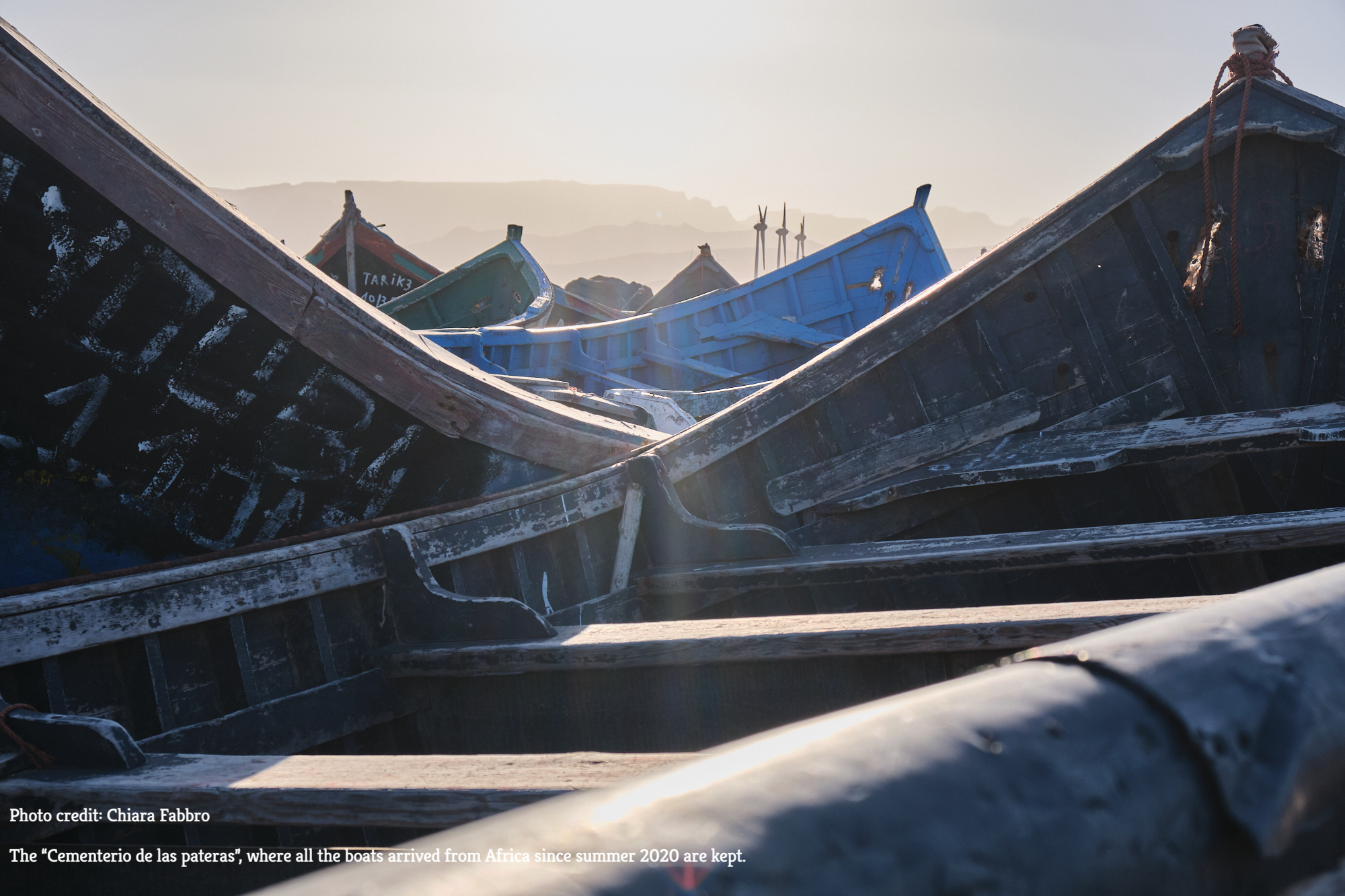By Denise Ottavi
In recent years, Italy has been one of the countries with the most arrivals of refugees and displaced people.[1] Between 2014 and 2018, 648,117 displaced people arrived in Italy, and 32,000 more have joined them since the beginning of 2020.[2] According to UNHCR data,[3] analysed by AGI,[4] 10% of the displaced people who arrived in Italy in 2018 were women and 18% were minors.[5]
Most of these women and girls experience multiple forms of violence during their journeys, often continuing after their arrival in Italy.[6] These refugees are rarely identified or supported, and most of them do not receive timely medical support for their sexual and reproductive health.[7]
It is crucial to promptly locate and assist women and girls who experience trafficking and sexual gender-based violence in order to help them escape exploitation. It is important to note that the detrimental impacts of sexual gender-based violence (SGBV) and trafficking in human beings (THB) can lead women and girls to mistrust operators, police officers and doctors, even when help is offered.
In order to understand the dynamics that affect these women and girls, it is imperative to employ operators and law enforcement officers with a solid background in SGBV and THB. Some training procedures fail to take into account the psychological challenges endured by victims of THB and SGBV, increasing their risk of suffering through refoulement, or years of exploitation.
Women and girls face the greatest risk of trafficking for sexual exploitation.[8] Nigeria is their primary country of origin: approximately 80% of Nigerian women who arrived in Italy are THB survivors.[9] In recent years, the number of women treated from other countries has also increased,[10] yet institutional obstacles still prevent women from being adequately supported in Italy despite these growing numbers.[11]
During the lockdown in Italy, the situation for women and girls suffering from SGBV or THB deteriorated further due to government-enforced restriction of movement. Women suffering from trafficking have been left to fend for themselves[12] without access to food, money, or government aid.[13]
The Special Rapporteur on trafficking in persons concluded that the situation for victims of trafficking and sexual exploitation has taken a turn for the worse globally due to the lack of financial resources, and poor access to services – causing further exposure to abuse by the traffickers.[14]
The access to service is limited because women often stay at home with a violent partner and may have difficulties in contacting helplines that support women suffering from violence or trafficking.[15] In Italy, during the lockdown, the capabilities for identification of vulnerabilities, violence and trafficking have diminished.
A key driving factor is the impossibility/difficulties to gain access to crucial places where women in need can meet the associations. This encompasses social health services (e.g. “Codice Rosa” in the hospital), the Territorial Commission for international protection, Italian language schools, social services and the reception system.[16]
During Covid-19, Italy didn’t provide funds to support women exposed to trafficking; hence associations must themself find the funds required to support women in need.[17]Prejudice against women fundamentally impacts the identification of vulnerabilities and recognition of international protection, especially when officials aren’t trained to recognise indicators of SGBV/THB.

In fact, women and girls affected by trafficking and violence may have normalised their experiences to the extent that they do not identify themself as victims and even have difficulty recounting the violence due to fear of exposure and stigmatisation.
Moreover, these women come from various cultural, economic and religious backgrounds; thus, it is crucial to understand how violations of sexual and reproductive rights, violence, exploitation and trafficking interact with these factors to affect women’s lives in different ways. Institutions must be trained to address gender-based violence’s specificity under the context of migration to support women in escaping from violence adequately.
A feminist and an intersectional approach are necessary to identify vulnerabilities, support women in escaping violence, improve the legislative system’s effectiveness, and prevent the exploitation and the non-refoulement of women exposed to violence and trafficking.
Lastly, more funds must be allocated to associations that support women escaping from violence or trafficking to allow the effective implementation of the legal provisions and appropriate support to address the women’s needs.
Read more in Refugee Rights Europe’s latest report ‘An Overlooked Crisis’.
[1] https://www.ecfr.eu/specials/mapping_migration – https://data2.unhcr.org/en/situations/mediterranean/location/5205 and https://frontex.europa.eu/along-eu-borders/migratory-routes/central-mediterranean-route/
[2] https://data2.unhcr.org/en/situations/mediterranean/location/5205
[3] https://www.unhcr.org/it/risorse/carta-di-roma/fact-checking/donne-rifugiate-la-violenza-molte-facce/ (2017)
[4] https://www.agi.it/data-journalism/morti_migranti_mediterraneo_dati-5605198/news/2019-06-05/
[5] https://www.agi.it/data-journalism/morti_migranti_mediterraneo_dati-5605198/news/2019-06-05/
[6] https://www.unhcr.org/it/risorse/carta-di-roma/fact-checking/donne-rifugiate-la-violenza-molte-facce/
[7] https://www.unhcr.it/wp-content/uploads/2018/10/UNHCR_SGBV_-Strategia_2017_2019_Final.pdf
[8] https://www.europarl.europa.eu/RegData/etudes/BRIE/2016/577950/EPRS_BRI(2016)577950_EN.pdf
[9] https://www.unhcr.it/wp-content/uploads/2018/10/UNHCR_SGBV_-Strategia_2017_2019_Final.pdf
[10] https://ec.europa.eu/anti-trafficking/member-states/italy-1-general-information_en
[11] https://www.direcontrolaviolenza.it/violenza-sulle-donne-in-che-stato-siamo-migranti-richiedenti-asilo-e-rifugiate/
[12]https://www.theguardian.com/global-development/2020/jul/10/sex-traffickers-left-thousands-of-women-to-starve-during-italy-lockdown-coronavirus
[13]https://www.theguardian.com/global-development/2020/jul/10/sex-traffickers-left-thousands-of-women-to-starve-during-italy-lockdown-coronavirus
[14] https://www.ohchr.org/Documents/Issues/Trafficking/COVID-19-Impact-trafficking.pdf
[15] https://www.ingenere.it/articoli/come-stanno-le-migranti-nella-pandemia
[16] https://www.ingenere.it/articoli/come-stanno-le-migranti-nella-pandemia
[17] Differenza Donna, Giovanna Bruno Responsible for the anti-trafficking center “Taking the Flight” of Differenza Donna ONG





